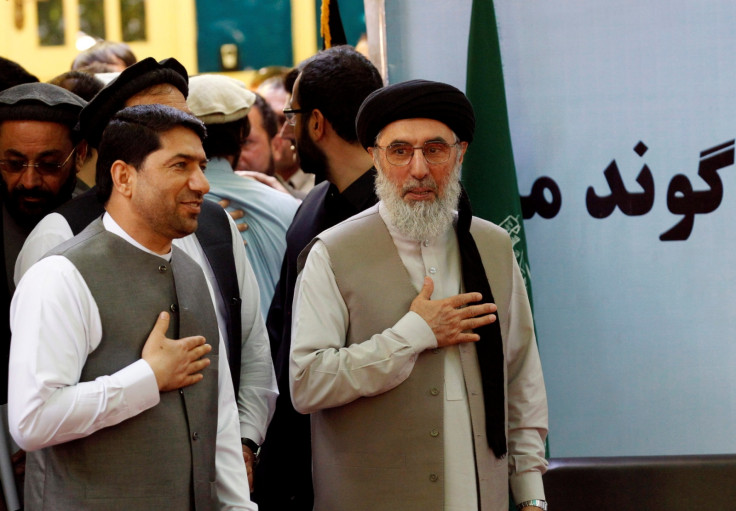Gulbuddin Hekmatyar, Afghanistan's notorious warlord, urges Taliban to stop fighting
Hekmatyar also calls for the Taliban to begin peace negotiations with the government.
Gulbuddin Hekmatyar, one of the most notorious warlords of Afghanistan, on Saturday (29 April) urged the Taliban to stop fighting and begin peace negotiations. It was his first public speech since signing a peace deal with the Afghan government.
"I invite you to join the peace caravan and stop the pointless, meaningless and unholy war," the former prime minister of the country said while addressing a gathering of his followers and Afghan politicians in Laghman province, east of the capital, Kabul.
"I want a free, proud, independent and Islamic Afghanistan," he added.
Hekmatyar, who was blacklisted by the United Nations in 2003, returned to Afghanistan after the UN removed his name from the list of most wanted Isis and al-Qaeda terrorists in February 2017.
The Afghan government had requested the UN to remove the warlord's name from the list as part of a peace deal that Hekmatyar and his militant group, Hezb-i-Islami, signed with the government in September 2016.
Under the accord, the Afghan government promised an official pardon to the militant group's associates and the group would be accepted as a political party involved in major political decisions, although it would not join the government.
The accord came in for praise from several quarters as a step forward to wider peace in the country, but some Afghans and human rights groups also criticised it for the pardon it gave Hekmatyar and his fighters.
Human Rights Watch researcher Patricia said that Hekmatyar's return "will compound the culture of impunity" and also called the deal an "affront" to victims of violence.
Hekmatyar was a prominent anti-Soviet commander in the 1980s and played a vital role during the bloody civil war of the 1990s when he was the prime minister. He was also accused of the 2013 Kabul attack, in which two US soldiers along with four US civilian contractors and eight Afghans were killed.

© Copyright IBTimes 2024. All rights reserved.





